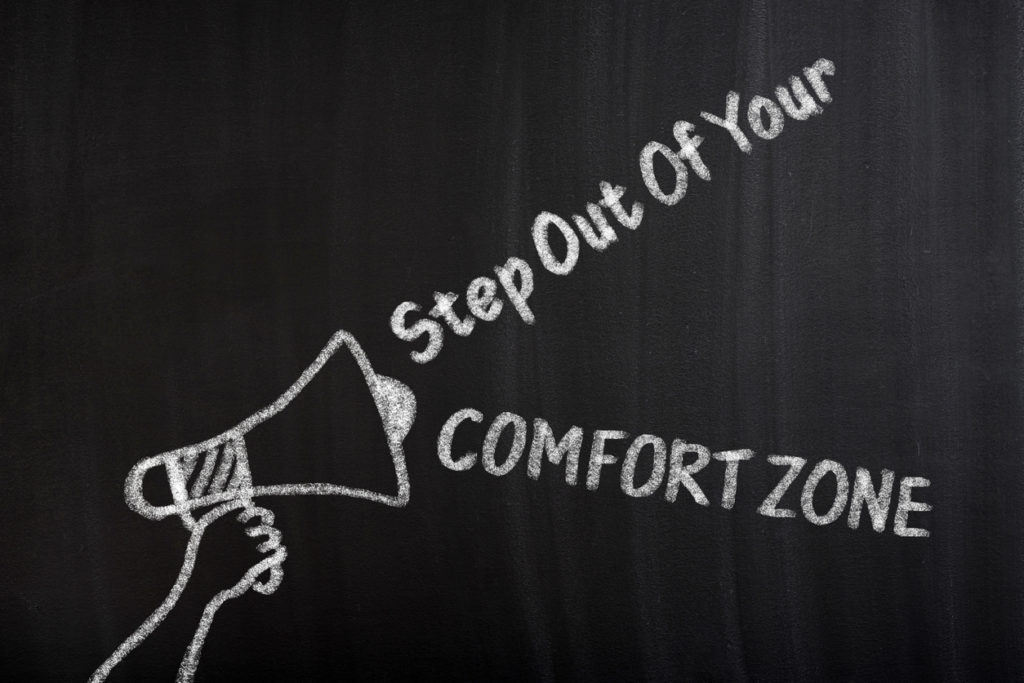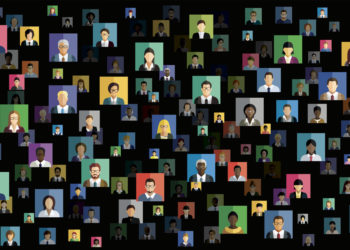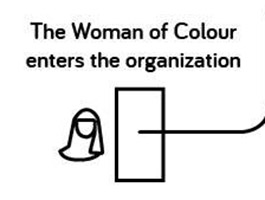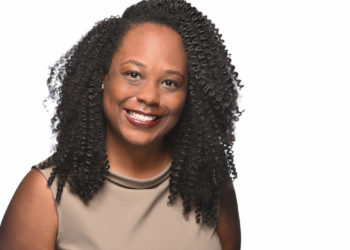When I was asked to join The Scholarly Kitchen, it gave me pause – what exactly was I taking on, and what would it mean to be the “education chef”? Literally, I knew I was joining a team responsible for serving the scholarly community; and, that I would be delivering educational content that helps to develop skills and habits necessary for career growth and professional development. However, as I began writing my first post, I realized that if I wanted to facilitate ongoing learning, more than just traditional “101” type articles would be required. At times, I will also have to openly express my opinions on somewhat controversial topics as a dispassionate critic. Rick Anderson talked about the necessity of being able to separate passion from professional discourse as an obstacle he’d faced in his career. A barrier faced in my own career just so happens to coincide with one of those important but controversial topics in our industry, diversity.

“I think I hate the term diversity. What does it really mean?”
All the talk in our industry and the greater world at large about inclusiveness and diversity often leaves me questioning what “diversity” truly means, and where and how can I find my place within it. In all honestly, it took several weeks of back and forth as I asked myself if I should even begin to discuss this issue; Would I have anything to add of value to the conversation? Would doing so make me the ‘Angry Black Woman’? Would starting this discussion make everything I write going forward carry a hint of racial connotation? In the end, I realized that it is this exact hesitation that hinders the movement towards inclusion. And that regardless of whether I wrote this post, the need to understand not only my role, but the role of every publishing professional in diversity and inclusiveness would still exist. In fact, being both a woman and person of color, I believe it is my responsibility to speak about my experiences and bring my perspective to the table of diversity and inclusiveness. Sometimes just offering a different perspective can shift the entire conversation, and my voice is only a slice of the pie.
So why do I hate the term diversity? Perhaps it is because, while I’m excited to see all the movement for more inclusive and diverse efforts, I am slightly confused as to where I’m expected to fit in the discussion.
Take for example — this year I attended an industry conference discussion panel on workplace equity and diversity. I was eager to learn about what other organizations were doing to address equity and diversity, as my own organization is increasing its efforts on inclusivity. The moderator introduced the panelists and each individual shared information about their company and its mission. And while I started off interested in the topic and ready to learn from the panelists, I slowly began to grow disconnected from the discussion. As I shifted my view from one panelist to the next, I began to realize that the panel itself lacked the level of diversity they encouraged us to reach. I sat through the discussion while the speakers went back and forth sharing their research findings, and the occasional audience member would chime in with questions. The session closed with insights on what we could immediately begin to do to create more inclusive workplaces, as well as tactics to help our organizations facilitate change. I clapped hesitantly, and then took a quick glance at the audience; about 8 percent were people of color, myself included.
It is interesting to seemingly be the subject of discussion regarding inclusiveness and diversity, all the while never being a part of the discussion. Initially, as with this post and with the panel, I feel the urge to raise my hand and offer my opinion about what it is that I actually need; But instead, I just sit silently listening to stats and to research informing us about the importance of diversity, how we can get there, and what it does for organizations as a whole — all the while still asking myself, where do I fit in?
Far too often, as society we do way too much talking about diversity and inclusion, and don’t take enough action to make diversity or inclusion happen. We meet, we discuss, and we brainstorm, rest and repeat – all while standing still. And what may be even more detrimental to the plight, are the people like myself with something to say, but fearful or confused about where and when to take action. I am not an expert in the subject of diversity and inclusiveness. I cannot tell you how to approach diversity or inclusion as an investigator of trends and data, all of which are important to the shift toward more diverse environments.
What I can begin to do, however, is open up a dialogue and begin the informal exchange of ideas via the written word. I can begin to empathically describe how these things, or rather, the lack thereof, have impacted me as I work to become a leader in this field. I can begin to associate the term diversity with action. I can begin to give others the opportunity to have a seat at the table — to share their perspective on what diversity should be and how we could get there. I can promote others to find their voice in a discussion that affects us all. I figured I would share these thoughts about inclusiveness and diversity as I begin my journey here as a ‘Chef,’ as I now will be providing a new perspective.
You might be asking yourself, just as I did when first approached with this opportunity, is it irony that they happen to recruit me just as the conversation about diversity and inclusion is reaching a higher peak? From my perspective this is an opportunity to put into practice the concept of diversity by allowing people who are dissimilar into a space not necessarily created with them, but for them; and at times perceived as not receiving of them. Although diversity is intended to describe a group of people, in some regards, I am diversity and these words that I am writing is making this space more inclusive. Does this mean that the Scholarly Kitchen is collectively more diverse? No, not necessarily, but this definitely displays that progress is underway. The Chefs are listening and they have actively started being change vessels, moving the industry in a new direction. And I’m not saying this just because of my new chefly status, but rather because of intentional efforts such as formation of the Coalition for Diversity & Inclusion in Scholarly Communications, or the Workplace Equity Project. They are giving action to diversity, and showing how we can start to shift barriers in scholarly publishing.
So while some of my responsibilities here will be to bring in educational content, it is important that I continue to provide the space and a perspective for those who may share my experiences in finding my place in this ever changing publishing ecosystem. May my voice mirror many readers of color who are impacted by inherent bias; and may it also encourage both the young professional striving to find the right mentor, or the perfect mentee looking to share their knowledge. Lastly, may my voice cry out in support for organizations to continue their efforts to similarly help facilitate a safe space for prejudices to really subside. My plea is that this well intended message is received as such. May it not be received with anger, angst or discomfort, but rather begin to move you out of your comfort zone, and encourage you to take your seat at the table, find your voice, and share your perspective.
Discussion
8 Thoughts on "How-to: Getting to the End of Your Comfort Zone"
Thanks Jasmine, for writing here, extending out of your comfort zone, and sharing what I sense many also think and feel. I look forward to reading many more of your posts, and hope you, and we collectively as a community can find ways to inspire, educate and bring about real meaningful change.
Welcome to the Kitchen Jasmine. Thanks for kicking things off with an insightful post that lets us get to know you a bit better. Glad to have you on board and looking forward to your future posts!
Thank you for a great post, Jasmine, and reminding all of us that we have a role in facilitating safe spaces, even if that means sometimes stepping out of our own comfort zone and speaking up.
Welcome, Jasmine! And thank you for such an insightful, honest post!
Thanks for sharing your honest thoughts about this topic. I also especially appreciate that you shared some emotions, within the particular context of the diversity meeting, about what inclusion and exclusion feels like. The lack of diversity we experience continues to exist (and came about) because of unreasonable fears — more emotion than rational thought. It is helpful to know what it feels and looks like to you.
Good article.
I think when one begins to talk about diversity, w must realize that talking and writing about diversity does not mean that something is going to be done. Presentations, papers, and symposia become fodder for the CV’s publications sections, weather attempts to action toward diversity is taken.or not.
Many who discuss diversity may not say that they are not for diversity. Many may be perfectly happy that there is no person of color at the table. At some point those who discuss adversity must begin to admit publicly these feelings and attitudes. One factor that supports the fact that diversity is still a issue is that many people really do not want the department, workplace, or profession to become diverse. Many may not say it. Many may act it out by attending meetings and writing papers about diversity, so that they do not have to cast the deciding vote to hire a person or color. …and yet, casting that supporting vote to hire a person of color is still one of the effective ways to address diversity. Period.
Thank you for your honest and encouraging view. As taboo as it may seem, it is something that needs to be addressed. If more people discussed diversity, the less taboo it would be. Unfortunately many still shy away from speaking on diversity. Thank you for your bravery.
Thank you for this. I look forward to reading your future posts.



